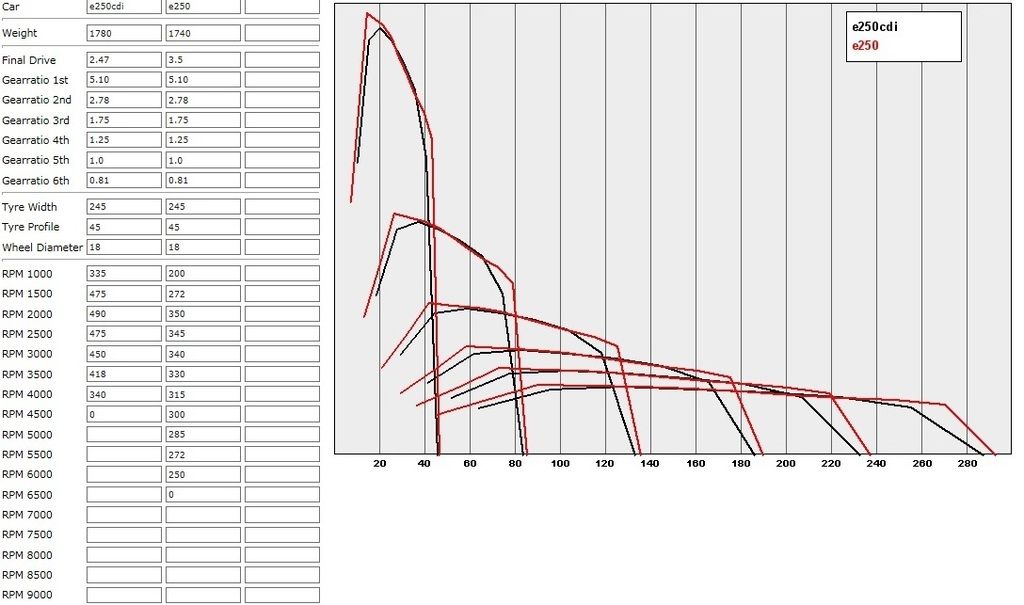The rev range is a relative term, you can't conclude anything from the absolute values. Let's imagine that someone had installed a 1:2 gear and then measured the torque to generate the curve. The curve would then reach half the original torque and twice the original rpm. You may say that this would make the rev range creamy and long-legged, but that has nothing to do with the engine performance.J.A.W. wrote:I do not agree - CI & SI mills as shown in the M-B have quite distinctive differences in feel..
The short punchy rev range of the diesel is marked - in comparison to the creamy long-legged petrol mill.
& the non-throttle CI engine has a characteristic disconnected non-linear 'floaty' powerband/turbo response, too.
If you look at the curves posted above, you see that they are short and punchy in 1st gear and long-legged in 6th gear. But the engine is the same. An engine that delivers 500 Nm between 2000 rpm and 3000 rpm performs identically to an engine that delivers 250 Nm between 4000 rpm and 6000 rpm. So whether it is short and punchy or long-legged, doesn't matter.


